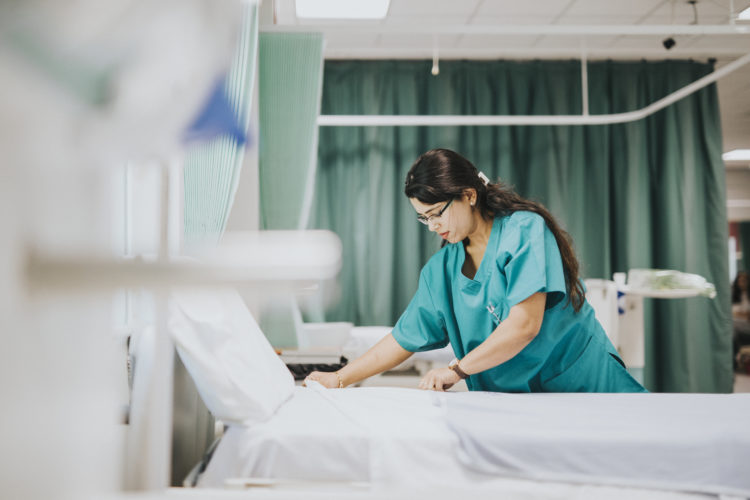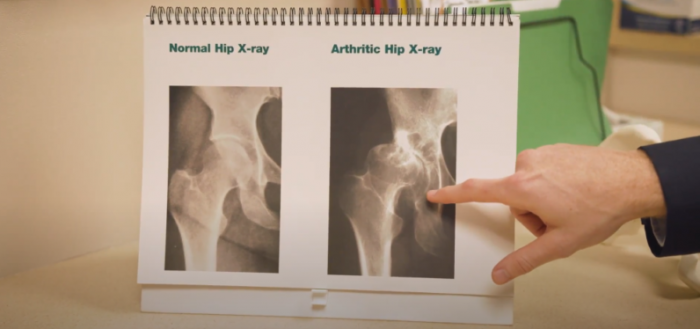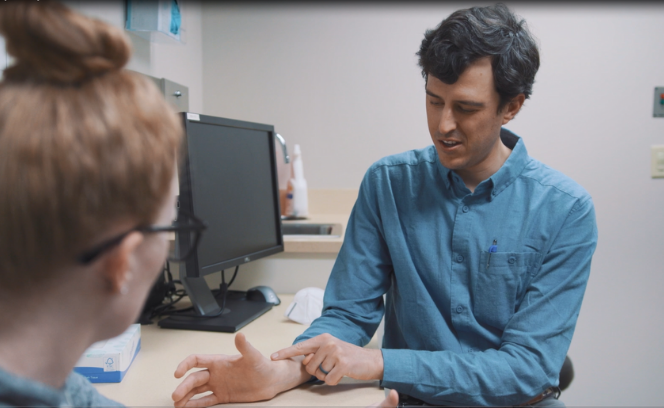
Infection is a very serious complication any patient may face after joint replacement surgery. Together with your primary care physician, you will work to help prevent infection after surgery so that you have the highest chance at making a full recovery. Making sure to communicate your health status to your surgeon before your total joint replacement surgery is crucial to avoiding infection. You will want to inform your doctor if you have the following:
- A cold
- Open cut/wound
- Other active infection, i.e., ear infection, upper respiratory infection, urinary tract infection, or active skin infection
Getting your body ready
Taking good care of your body is a necessary step prior to having joint replacement surgery. If there are unnecessary risks, your surgery may need to be canceled or postponed. Taking care of yourself now will help minimize issues later and shorten recovery time.
- We recommend you see your dentist at least one month before surgery to ensure that you don’t have any dental infections or problems that could delay your surgery. Have all dental work completed, including routine cleaning, at least one month prior to surgery to allow sufficient time for healing and to minimize the risk of infections.
- Avoid cuts, rashes, or scratches from pets. If there is a risk for infection, you may need to cancel or postpone your surgery.
- On the evening prior to surgery, it is a good idea to cleanse your body using anti-bacterial soap. You will also be asked to wipe down your body with Chlorohexidine wipes on the day of your surgery to decrease the overall bacteria on your body.
- On the day of surgery, you will be given a dose of antibiotics which will continue 24 hours after surgery. These antibiotics fight bacteria that may get into your blood stream.
During the surgery
Infections are rare, and Cascade Surgicenter where a number of The Center’s surgeries are performed is known for having much lower infection rates compared to the national average. The numerous precautions taken by surgeons and the operating team to keep bacteria from getting into your system make it unlikely for an infection to occur. Though these precautions decrease the likelihood, infection can still happen and can spread to your joint replacement while in the hospital or after you go home. It can even occur years later.
After the surgery
Once you are back home, several steps can be taken to decrease the chance of infection. The sterile dressing covering your incision should be changed from time-to-time, especially if fluid is draining from the incision area.
Warning signs of Infection
The following symptoms after surgery could indicate infection and should be monitored closely. If you begin to experience these symptoms, call our office to speak with a provider at 541.382.3344.
-
- Tired and lack of energy
- Fever great than 101.5 degrees Fahrenheit
- The incision site is hot or red
- Redness or drainage does not decrease
- Cloudy or foul-smelling fluid draining from the incision site
- Increased pain
We’ve put together a free guide to help you better understand joint replacement preparation, orthopedic surgery, and recovery. If joint replacement surgery is the best solution for you, The Center’s orthopedic surgeons and support staff are ready to help you prepare for surgery and plan for a successful recovery. Click below to sign up and receive our free joint replacement guide.





